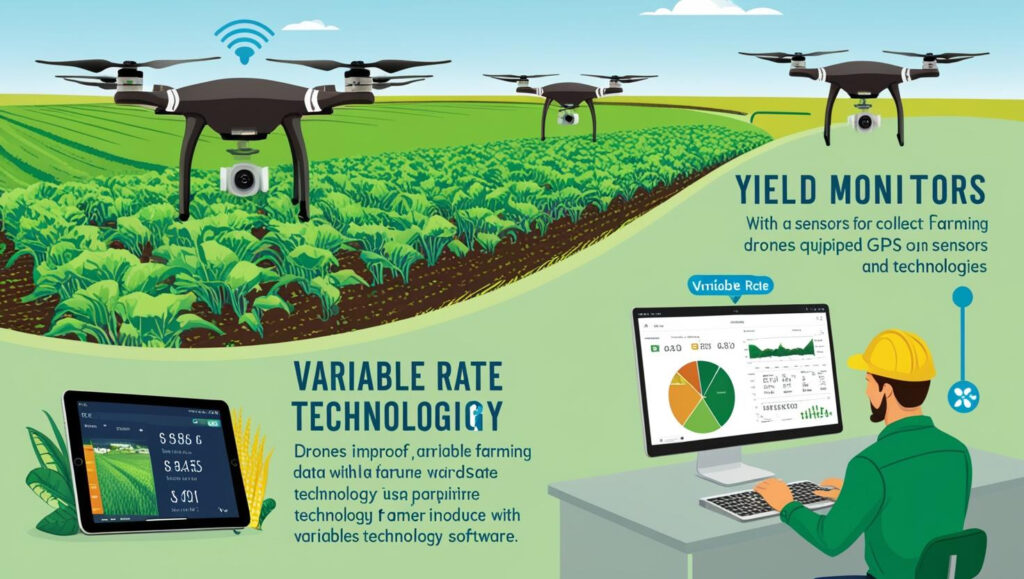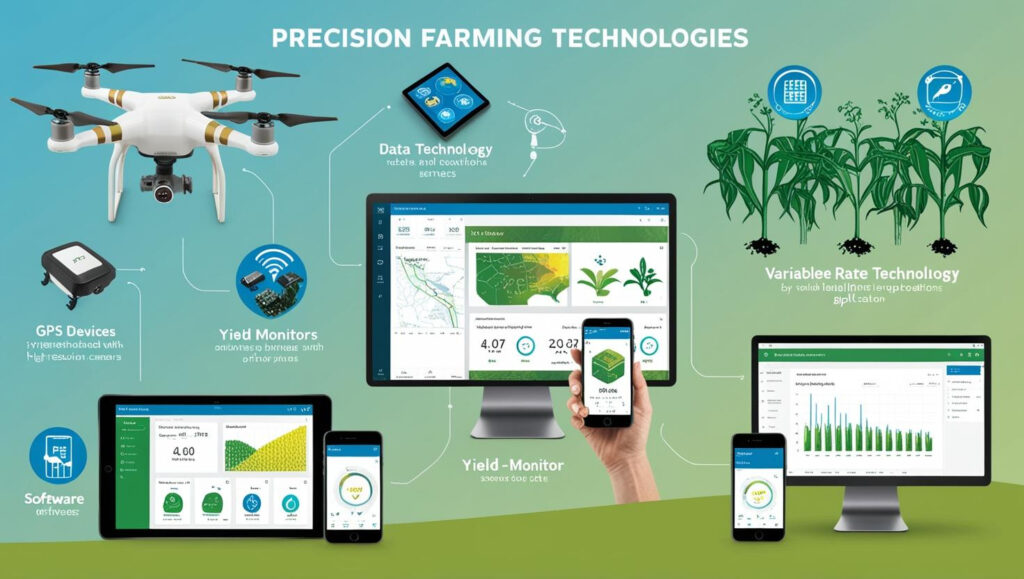Precision farming, also known as smart farming, is transforming the agricultural industry by integrating advanced technologies such as IoT, artificial intelligence (AI), big data, and automation. This approach enhances efficiency, improves crop yields, and minimizes resource wastage, making farming more sustainable.
With the growing global demand for food, increasing adoption of digital agriculture, and the need for sustainable farming practices, the precision farming market is expected to witness significant growth. This article explores the market’s growth projections, key drivers, challenges, and major players shaping the future of precision agriculture.
Download PDF Brochure @ https://www.marketsandmarkets.com/pdfdownloadNew.asp?id=1243

Market Growth Projections
1. Market Size and Growth Rate
The global Precision farming market size is expected to grow from USD 9.7 billion in 2023 to USD 21.9 billion by 2031, growing at a CAGR of 10.7% between 2023 to 2031. The increasing use of advanced technologies such as AI-powered analytics, IoT-based sensors, and GPS-guided machinery is driving this expansion.
2. Key Market Drivers
Several factors are contributing to the rapid growth of the precision farming market:
- Rising Global Food Demand: With the world population expected to reach 9.7 billion by 2050, efficient food production is crucial. Precision farming helps maximize crop yields using fewer resources.
- Government Initiatives and Subsidies: Many governments worldwide are promoting smart agriculture through funding, subsidies, and policy support to encourage technology adoption.
- Climate Change and Sustainability Goals: Precision farming minimizes environmental impact by optimizing water usage, reducing chemical inputs, and promoting regenerative agriculture.
- Adoption of IoT and AI in Agriculture: The integration of smart sensors, machine learning algorithms, and real-time data analytics is transforming farming operations.
- Labor Shortages in Agriculture: The increasing shortage of skilled farm labor is pushing the demand for automation and robotics in farming.
3. Regional Growth Insights
- North America: Leading the market due to strong technological infrastructure, high adoption of smart farming solutions, and government support. The U.S. is a major contributor to market growth.
- Europe: Increasing focus on sustainable agriculture and stringent environmental regulations are driving the adoption of precision farming.
- Asia-Pacific: Expected to witness the highest growth due to rising population, increasing food demand, and government initiatives promoting smart farming in countries like India, China, and Japan.
- Latin America and the Middle East: Emerging markets with potential for expansion due to growing investments in agri-tech solutions.

Key Players in the Precision Farming Market
Several leading companies are shaping the future of the precision farming industry by developing innovative technologies and expanding their global reach.
1. Deere & Company (John Deere)
- A pioneer in agricultural machinery, John Deere has integrated AI, IoT, and automation into its farming equipment, offering smart tractors, precision sprayers, and farm management software.
2. Trimble Inc.
- Specializes in GPS-based precision agriculture solutions, including guidance systems, yield monitoring, and farm automation tools.
3. AGCO Corporation
- Offers a range of precision farming technologies, including automated tractors, variable rate technology (VRT), and remote monitoring solutions.
4. CNH Industrial N.V.
- Known for brands like Case IH and New Holland, CNH Industrial provides precision farming solutions such as autonomous farming equipment and digital farm management platforms.
5. Raven Industries
- A leader in precision agriculture technology, Raven focuses on autonomous farming solutions, including driverless tractors and AI-driven analytics.
6. Bayer CropScience
- Through its Climate FieldView platform, Bayer provides data-driven insights for precision farming, optimizing crop health and yield prediction.
7. Topcon Agriculture
- Develops advanced precision farming tools, including GPS systems, sensors, and automated planting technologies.
8. DJI Agriculture
- A major player in drone technology, DJI provides agricultural drones for crop monitoring, spraying, and imaging.
Challenges in the Precision Farming Market
Despite its rapid growth, the precision farming industry faces several challenges:
- High Initial Costs: The implementation of precision farming technologies requires significant investment in hardware and software.
- Data Privacy Concerns: With increasing reliance on digital farming, data security and privacy issues are a concern.
- Lack of Technical Knowledge: Farmers in developing regions often lack the technical skills required to operate precision farming tools effectively.
- Infrastructure Limitations: Poor internet connectivity and lack of technological infrastructure in rural areas can hinder market growth.
Future Outlook
The future of precision farming looks promising with continuous advancements in AI, robotics, and satellite imaging. Key trends expected to shape the market include:
- Increased use of automation and robotics in farming operations
- Expansion of AI-powered farm management platforms
- Integration of 5G technology for real-time data transmission
- Growing adoption of blockchain for agricultural supply chain transparency
As the industry moves towards smarter and more sustainable farming solutions, collaboration between agribusinesses, technology providers, and policymakers will be essential to drive the precision farming market forward.
The precision farming market is poised for significant expansion in the coming years, driven by technological advancements, increasing food demand, and government support. Companies like John Deere, Trimble, and Bayer are leading the way in developing innovative solutions that optimize farming operations.
While challenges such as high initial costs and infrastructure limitations exist, the potential benefits of precision agriculture—higher productivity, sustainability, and resource efficiency—make it a crucial component of the future agricultural landscape.
As the industry continues to evolve, precision farming will play a vital role in ensuring food security while promoting sustainable agricultural practices worldwide.